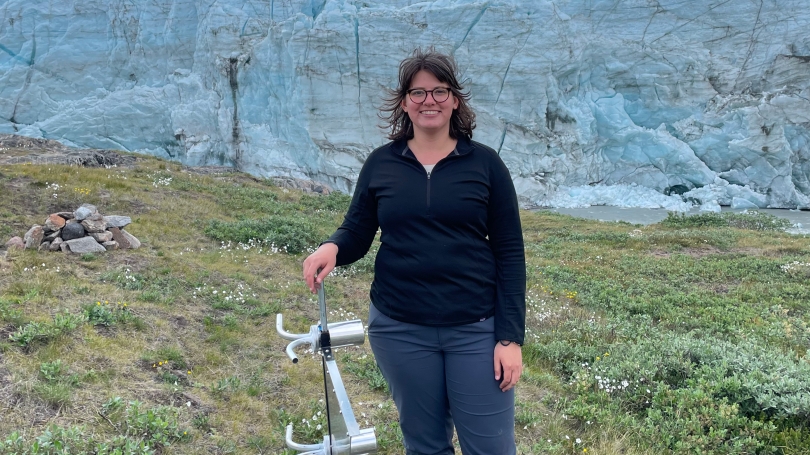
Photo: Sarah Cuprewich
Sarah Cuprewich, a PhD candidate in the ecology, evolution, environment, and society program (EEES), has been awarded the Ecological Society of America's (ESA) Katherine S. McCarter Graduate Student Policy Award. This award helps graduate students bridge science and policy by providing training in communication and advocacy before they meet with lawmakers.
Cuprewich and the other award recipients will travel to ESA's Washington, D.C. offices this spring to connect with ecologists working in federal agencies and meet with congressional policymakers to advocate for federal investment in biological and ecological sciences.
"Kudos to these ten outstanding graduate students and scientists in training," said ESA President Stephanie Hampton. "Their dedication to science policy is essential for bridging research and decision-making. By engaging with policymakers, they will help ensure that ecological science informs solutions to today's most pressing challenges."
Cuprewich's research focuses on the ecology of soil fungi, examining how fungal communities form and spread through soil, small mammal scat, and air samples. Her projects range from large-scale surveys of fungal distribution across the country to more focused studies on urban community gardens and the rapidly changing Arctic environment.
Her interest in ecology and science policy grew through her involvement in Dartmouth's Joint Science Education Project (JSEP). As a graduate fellow for two field seasons, she supported a program that brought high school students from the United States, Denmark, and Greenland together in Greenland to study Arctic ecology.
"JSEP was actually developed through high-level State Department initiatives to improve international relations," Cuprewich says. "It was really cool to see that science diplomacy can be a tool for solving global problems. That experience is what motivated me to explore policy and apply for this award."
Looking ahead, Cuprewich hopes to use policy engagement to ensure research has a tangible impact.
"A lot of scientific papers end with, 'We hope these results will be used to do X, Y, and Z,'" she says. "I want to be part of making that happen—ensuring knowledge is used to benefit society, not just published and forgotten."
Through this award, Cuprewich looks forward to gaining the tools to advocate for these issues and contribute to the intersection of science and policy.